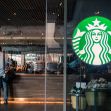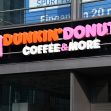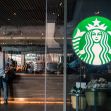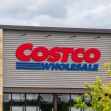A consumer rights advocacy group claims in a new lawsuit that Starbucks engages in false advertising. The lawsuit was filed earlier this month in a Washington DC court.
The lawsuit was filed by the National Consumers League on behalf of U.S. consumers and argues that Starbucks is falsely advertising how it sources the ingredients that go into some of its most popular products. Starbucks proudly displays on its coffee bags and tea products that it is “committed to 100% ethical sourcing.” The National Consumers League challenges this claim, arguing that recent reporting shows coffee and tea farms in Guatemala, Kenya, and Brazil that work with the brand are known to engage in human rights violations and labor abuses.
According to the reports as detailed in the complaint, Starbucks suppliers in Brazil have been the subject of unsafe labor practices and worker abuse over the past couple of years. Brazilian labor officials have reported violations, including garnishing the cost of harvesting equipment from workers’ wages. The Brazilian farms have also been accused of failing to provide their workers with clean drinking water or personal protective equipment and hiring underage workers. In a report published by a Brazilian outlet, a 2022 investigation into one farm uncovered 17 workers and three minors who were described as being part of a “modern slavery” operation. Just a month before the investigation, the farm owner had received a Starbucks seal of certification to continue its partnership with the global coffee brand.
Similar labor abuses and human rights violations have been reported in farms in Kenya and Guatemala. Starbucks has since announced that it has taken corrective actions to correct the abuse and labor violations in those countries.
As with many American companies, Starbucks employs third-party certification programs to evaluate the suppliers it works with and ensure integrity is maintained throughout the supply chain.
Starbucks has since launched its own verification and sourcing standards dubbed the C.A.F.E. Practices. The verification program is administered by a separate company, SCS Global Services, and works alongside Conservation International.
Once a supplier such as a coffee or tea farm receives the Starbucks seal of certification, it will be required to uphold over 200 environmental, labor, and quality standards. If a farm fails to meet those standards, it is barred from working with the company until the violations are remedied.
Despite the brand's thorough plan to ensure integrity throughout the supply chain, the lawsuit argues the certification program is not living up to its advertising. “Rather than take meaningful action to address the publicly known labor and human rights violations in its international supply chains, as consumers would expect from a company that professes “commitment to 100% ethical sourc,” Starbucks has instead turned a blind eye and continued to point to so-called ethical ‘certification’ programs that are known to be unreliable as the basis for its representations that its coffee and tea products are ethically sourced.” the lawsuit maintains.
The lawsuit argues that Starbucks has violated the District of Columbia Consumer Protection Procedures Act. Because of the misleading advertisement, the lawsuit says, plaintiffs are willing to and continue to pay a premium for select coffee and tea products. Starbucks is also knowingly capitalizing on consumer demand for ethically sourced products and marketing select products as such when they were not, according to the complaint. And although the coffee giant has been the subject of scrutiny in recent reporting over its suppliers, the brand has failed to “respond with any meaningful action,” argues the lawsuit.
The complaint is seeking to have the company admit it engaged in unfair and/or deceptive trade practices under the District of Columbia Consumer Protection Procedures Act; that it corrects its advertising; and unspecified damages.






